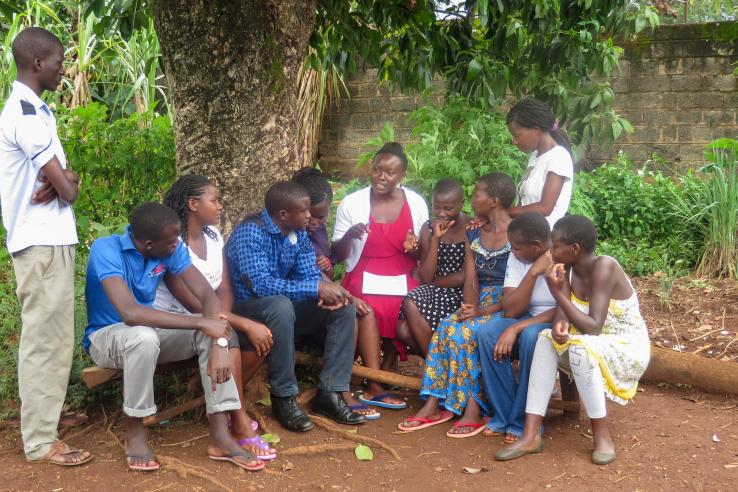Displaying 7111 - 7125 of 7772
Event
J-PAL Europe is pleased to announce that applications are now open for a three-day evaluation design workshop tailored to the interests of humanitarian organisations that intend to explore randomised evaluations as a complement to their evaluation, learning and innovation toolkit. As long as public...
Blog
Read about J-PAL Southeast Asia's November 2021 webinar to raise awareness of the Government of Indonesia’s policies and programs to promote gender equality and discuss learnings from evidence on women’s empowerment interventions around the world.
Evaluation
Researchers tested the impact of a meritocratic promotion system and beliefs about pay progression on the productivity of Community Health Workers in Sierra Leone. A combination of meritocracy and the promise of a steep salary increase after promotion led workers to make more health care visits, while non-meritocratic promotions with higher pay progression demotivated workers, reducing their productivity.
Update
J-PAL updates
J-PAL North America's December newsletter features five new state and local government partners, research results from a study on financial incentives for Covid-19 vaccine uptake, and a case study on the Office of Evaluation Sciences's work to institutionalize evidence use across federal government...
Evaluation
In rural Bangladesh, researchers evaluated the impacts of teaching women to track spending in financial diaries and providing a traditional financial education program on their financial literacy and well-being. Study participants had higher financial literacy levels after receiving either intervention and improved their savings behavior and debt management.
Person
Jyotsna Kandulna is an HR Associate at J-PAL South Asia where she provides solid foundational support in the HR operations by assisting in employee orientation, induction activities and new HR initiatives.
Person
Simi Mishra is an experienced learning and training management consultant with a strong background in strategy, capability development, training design/development, delivery, impact measurement.
Person
Ria Dutta is a Research Associate at J-PAL South Asia where she works on the Breakthrough project in New Delhi.
Person
Mehr Pasricha is a Senior Associate with the C-LOP (Creating Learning Opportunities for Public Officials in India) team at J-PAL South Asia.
Person
Person
Kunal Sharma is Director of Policy, Training, and Communications at J-PAL South Asia.
Blog
JOI Brazil’s social incubation process aims to support organizations in developing an evaluation proposal that can be funded through JOI.
Initiative Resource
Initiative projects and documents
Evaluation
Researchers are conducting a randomized evaluation to test the impacts of group-based therapy with and without a one-time lump sum cash transfers on the mental health and employment outcomes of adolescent girls in Uganda.




